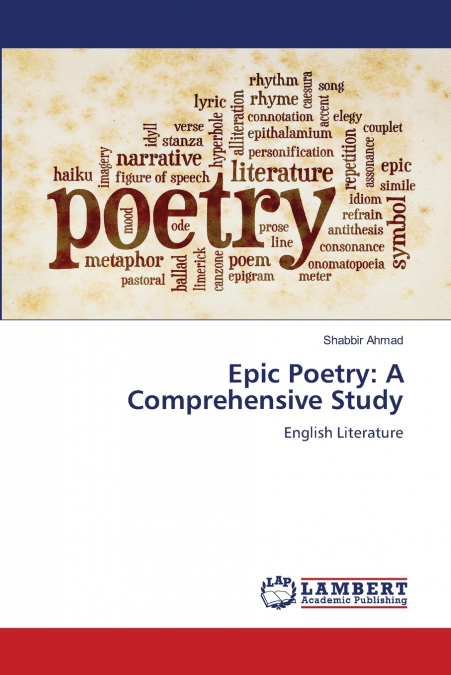
Shabbir Ahmad
Epic poetry is one of the oldest and most influential literary forms, chronicling heroic deeds, grand battles, and moral struggles across cultures. This book explores epic poetry’s history, characteristics, major poets, themes, literary devices, metrical structures, and legacy. It traces the evolution of epic poetry from oral traditions like The Iliad and Beowulf to literary masterpieces such as Virgil’s Aeneid, Dante’s Divine Comedy, and Milton’s Paradise Lost.Key themes like fate vs. free will, war and heroism, divine intervention, and the hero’s journey are analyzed alongside poetic techniques such as epic similes, elevated diction, and foreshadowing. The book also examines metrical patterns, including dactylic hexameter, alliterative verse, and blank verse, and explores rhyme schemes like terza rima and heroic couplets.Finally, the book highlights how the epic tradition continues to influence modern literature, fantasy, and film, proving that epic storytelling remains timeless in shaping cultural identity and artistic expression.